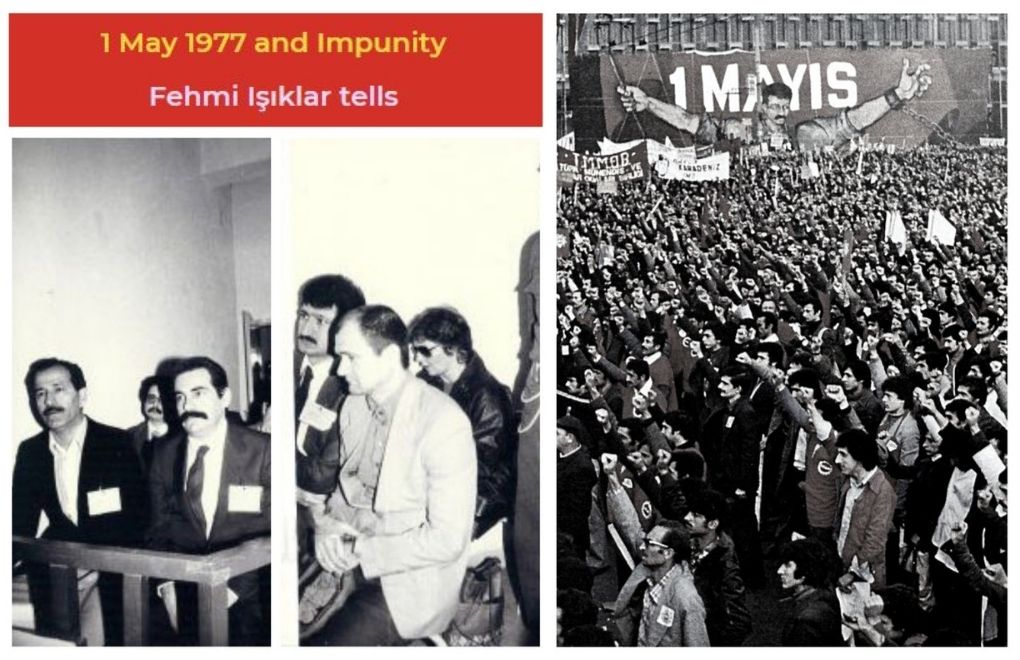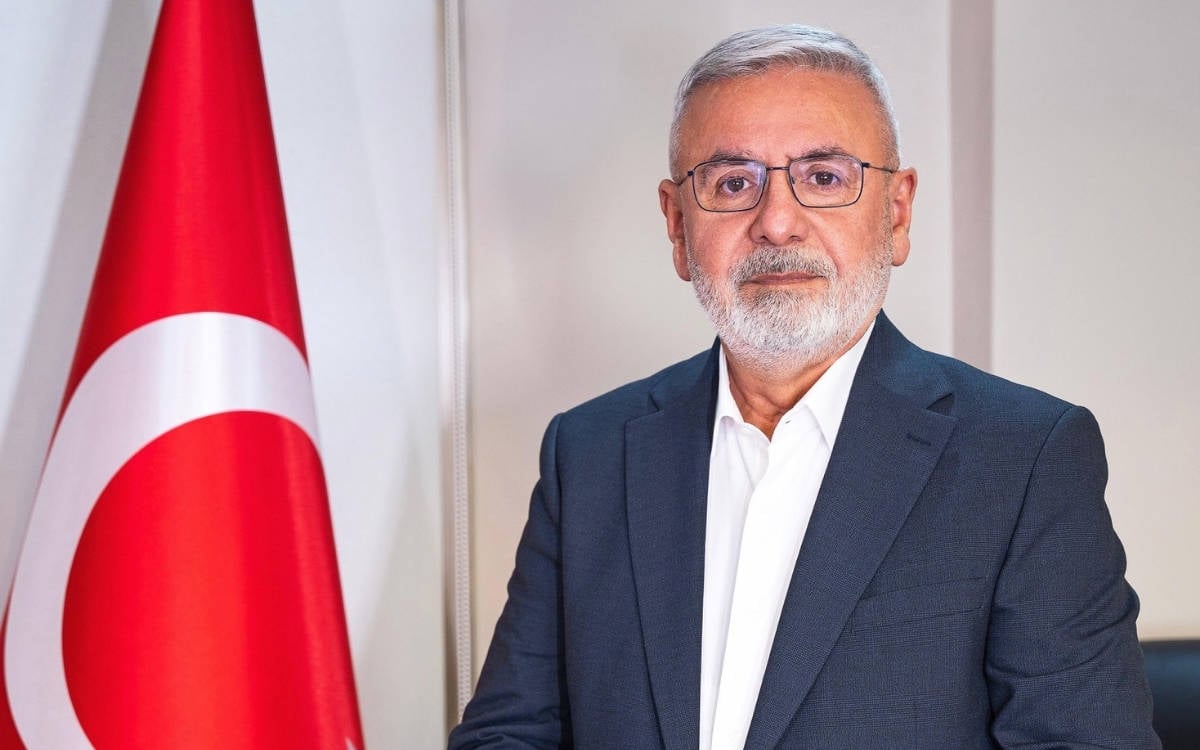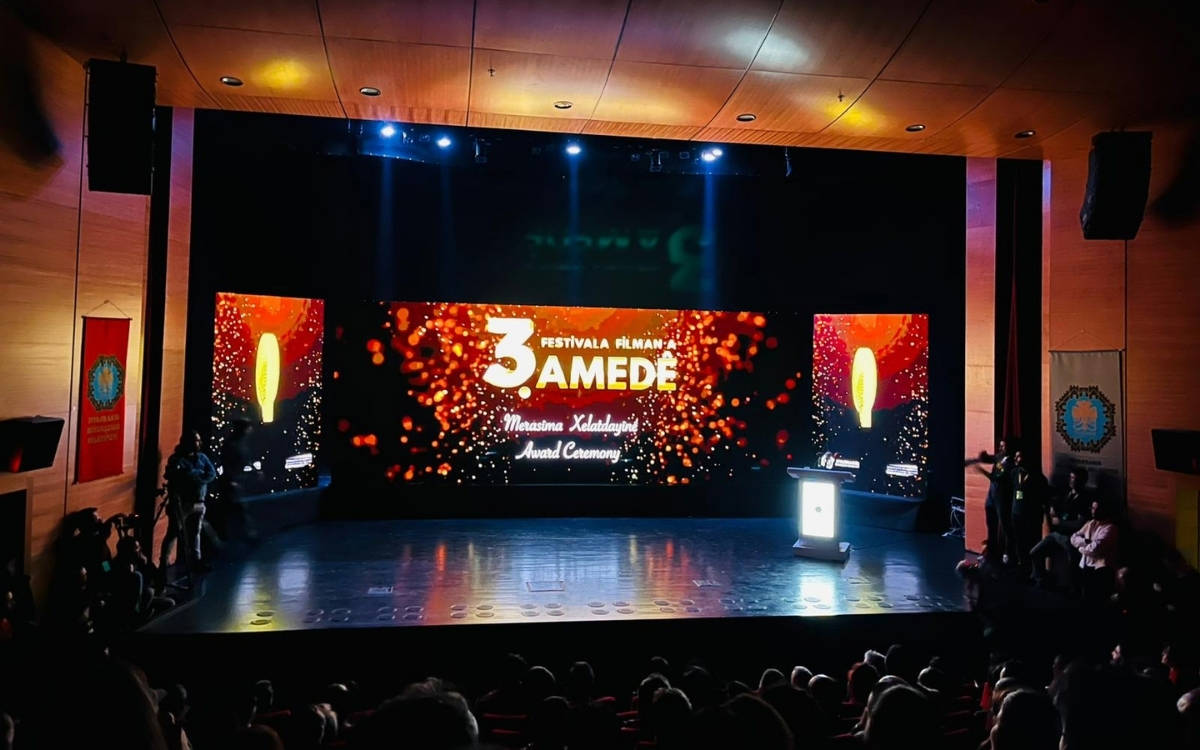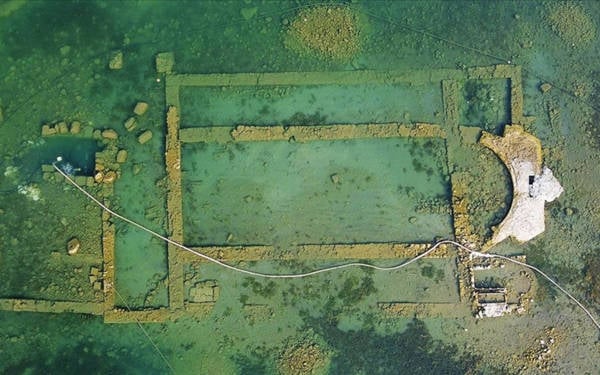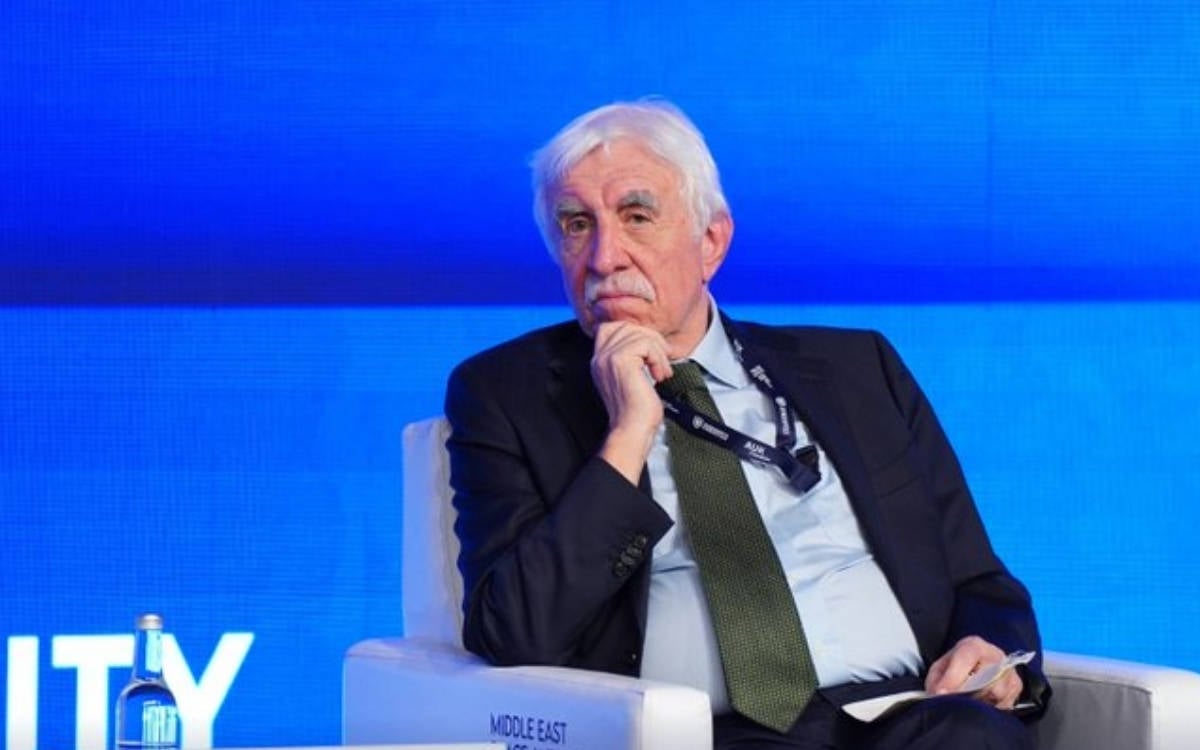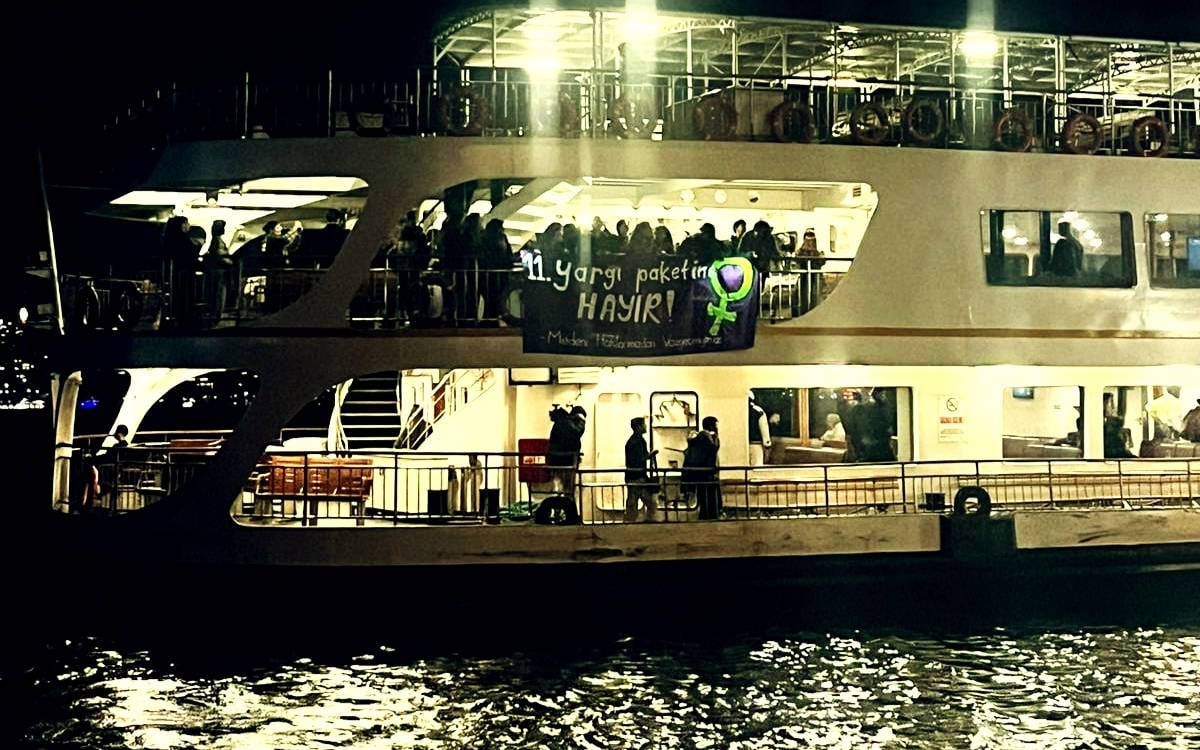Click to read the article in Turkish
"The perpetrators of this massacre, whom the state has deemed 'unknown,' must be revealed and brought to justice. Right now, the state remains implicated.
"This is one of the most significant cases in Turkey attributed to unknown assailants. If the perpetrators of this massacre had been punished, I wonder if the president of Confederation of Progressive Trade Unions of Turkey (DİSK), Kemal Türkler, and so many other of our comrades would have been murdered three years later? It's been 43 years. The state must find a way to absolve itself of this shame.
"They mustn't forget that so long as the working class exists, an issue will be made of this massacre, and it will be discussed, every year on 1 May. The state should stop avoiding it. The pain of what happened is still fresh for the working class."
These were the first words uttered by Fehmi Işıklar at the mention of 1 May 1977. He is one of the directors of DİSK who was in Taksim Square that day... One of five people on the DİSK Executive Committee of which Kemal Türkler served as president. His union work, which began in the Metalworkers' Union, saw him become general secretary of DİSK.
He told bianet about what happened on 1 May 1977, which he describes as "a beautiful, sunny Sunday," about how the workers were later blamed both by the media and political parties, about the emphasis placed on 1 May 1977 in the 12 September Indictment, and about what the members of DİSK were, and were not, able to do.
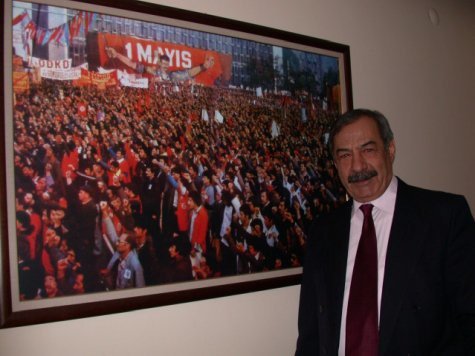
I was on both the managing and the organizing committee for the rally. Mehmet Karaca was the committee chair. We put a lot of work into the preparations. We began getting ready six months before 1 May 1977. The centre-right media was trying to terrorize the masses about how things would get ugly that day.
We, meanwhile, were doing our best to make sure measures were in place to prevent anything bad from happening. We put the general secretary of the Mineworkers' Union, Mehmet Ertürk, in charge of the security and safety of those taking part in the rally, and we assigned some 20 thousand DİSK members the task of setting up a security corridor.
We were all so excited and enthusiastic
We didn't get any sleep the night before. Those travelling from Anatolia hadn't got any sleep anyway because of the journey. We were all so excited and enthusiastic that day.
On 1 May 1976 we'd had a wonderful celebration. Neither the unions nor society at large was a stranger to such crowds.
We had decided to march to Taksim Square from three different directions. Each union had its own route. One characteristic of that time was that every union wanted to make itself seen. They were all striving to secure a prominent spot on the square, to be visible. We discussed where each union would be positioned. NGOs took part too. We'd put so much into the preparations.
And the march began. I was at the front, together with Kemal. Those on the square gave us an enthusiastic welcome. At the time, leftists were being taken into custody almost every day, and kept in custody for a few days at a time. But no one was worried about what would happen on 1 May 1977. It was a day when everyone felt completely free.
12 in Chicago, 34 in Istanbul
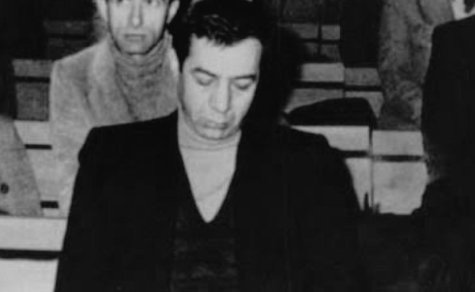
We were not expecting this attack. We'd taken precautions in terms of security, thinking that particular political groups might get rowdy to try and stand out. We hadn't taken any precautions against firearms though.
Can you imagine? In Chicago in 1886, the number of people who died over two days was 12, while we lost 34 people in just one day. We lost nearly three times more people than in the events that started the Labour Day protests. And with there being such a strong workers' movement at the time.
Shortly before the attack, our president, Kemal Türkler, took to the podium to give a speech, but meanwhile there were still groups of people trying to get into the square. It was at some point during that speech that we heard a gunshot.
A single bullet. Later it became clear that it was just a signal, because it was after that gunshot that the shower of bullets was unleashed from the Water Administration Building and the Intercontinental Hotel.
And then, once the tanks began filling up the square, people started running in a panic towards Kazancı Slope, and unfortunately many lost their lives there too.
Taksim and the aftermath
A few of us got Kemal Türkler out of the square. I went back to the square, I definitely did not want to leave. One of our personnel passed out, and I carried him towards the Atatürk Cultural Centre. Then a wounded man, then a kid who'd collapsed...
There were children on the square that day. They'd climbed up on top of the trucks. They were enjoying the excitement of that day too.
I was in a daze. I walked toward Gümüşsuyu like that, in a kind of stupor, and I sat down in front of an apartment building. I sat there as if I lived in that apartment, like I was someone from that neighbourhood, because the police had gone mad, they were rounding up anyone and everyone they could get their hands on and taking them into custody. Şinasi Kaya was my neighbour, and I called his house. He told me to get straight home. I went. Everyone was there, including Kemal Türkler and Mehmet Karaca.
As for the scene of the crime, we do know this: the bullets shot from the hotel windows clearly did not come from ordinary guns. These bullets were fired using proper artillery. Whoever did this had positioned themselves there beforehand, and planned this attack.
Of course trials were held, and we as DİSK did our part. Our lawyers gathered all of the evidence, they put so much energy and effort into this case. But the perpetrators were never found, and the case somehow kept getting postponed.
And so even though it wasn't officially proven, it became blatantly obvious who was behind it. The case was handed over to the Military Court in 1978 [at a time of martial law].
Preparations for 12 September
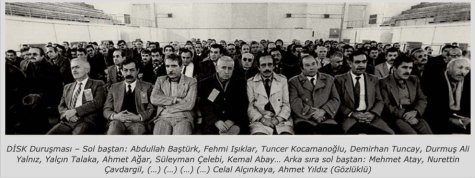
With the massacre of 1977 and those that followed, the preparations for the military coup of 12 September 1980 were completed.
1 May 1977 is part of the 836-page 12 September Indictment. It is referred to as part of an insurrection against the state with the intent of establishing a Marxist-Leninist government.
Those responsible for this coup once again put the blame on us, accusing us of planning a coup ourselves. And they put us on trial for it too. But nothing like that had ever even occurred to us, because the First of May was an international day of struggle.
Because of how everything went, they didn't give us a moment's peace afterwards either, in the time before 12 September. We never even had the chance to just sit down together and make any kind of plans. But then one day a young man came to the union office and said to us, "I lost my father that day, you need to do something, you're responsible for his resting place."
His father had died on 1 May 1977. As I recall, he was buried at the Karşıyaka Cemetery in Ankara. People were defiling his father's grave. And that really got to him. "I can't deal with this anymore, you, as members of DİSK, have to do something," he said. So you see, there was this kind of hatred toward the working class, and towards the First of May... (TY/APA/SD)
About Fehmi IşıklarUnionist, politician, writer. Founding chairperson of the People's Labour Party (HEP). He was removed from office while serving as an MP of Diyarbakır in 1993. He served as MP for Bursa with the Social Democrat People's Party (SHP) (1987-1991). He was a member of the executive committee and served as secretary general of the Metalworkers' Federation. He also served as president of the Modern Metalworkers' Union, and secretary general of Confederation of Progressive Trade Unions of Turkey (DİSK). He worked as a machinist at the Ammunition Factory of the Kırıkkale Mechanical and Chemical Industry Corporation (MKE), and as a technician at the General Directorate of Forestry's Central Repair Workshops for Bolu and Muğla and at the Kırıkkale Brass Factory. Born in Şanlıurfa in 1941, he is a graduate of the Kırıkkale School for Mechanical Technicians, and author of the book DİSK Davasında Savunma (Defence in the DİSK Trial), published in 1986. |
About Tuğçe YılmazJournalist, editor, researcher. "1 May 1977 The Voices of Those Who Lost Their Loved Ones / 1 May 1977 and Impunity" she was engaged in this dossier as a researcher, reporter, editor and writer. Her articles, interviews and reports are published in outlets such as bianet, BirGün Book, K24, 5Harfliler, Gazete Karınca and 1+1 Forum. She graduated from Ege University, Faculty of Literature Department of Philosophy. She was born in Ankara in 1991. |
 |
| This text was created and maintained with the financial support of the European Union provided under Etkiniz EU Programme. Its contents are the sole responsibility of "IPS Communication Foundation" and do not necessarily reflect the views of the European Union. |
CLICK - 1 May 1977 e-book is online
The ones who lost their lives on 1 May '77The ones whose loved ones we could talk to: Ahmet Gözükara (34, teacher), Ali Sidal (18, worker), Bayram Çıtak (37, teacher), Bayram Eyi (50, construction worker), Diran Nigiz (34, worker), Ercüment Gürkut (27, university student), Hacer İpek Saman (24, university student), Hamdi Toka (35, Seyyar Satıcı), Hasan Yıldırım (31, Uzel worker), Hikmet Özkürkçü (39, teacher), Hüseyin Kırkın (26, worker), Jale Yeşilnil (17, high school student), Kadir Balcı (35, salesperson), Kıymet Kocamış (Kadriye Duman, 25, hemşire), Kahraman Alsancak (29, Uzel worker), Kenan Çatak (30, teacher), Mahmut Atilla Özbelen (26, worker-university student), Mustafa Elmas (33, teacher), Mehmet Ali Genç (60, guard), Mürtezim Oltulu (42, worker), Nazan Ünaldı (19, university student), Nazmi Arı (26, police officer), Niyazi Darı (24, worker-university student), Ömer Narman (31, teacher), Rasim Elmas (41, cinema laborer), Sibel Açıkalın (18, university student), Ziya Baki (29, Uzel worker), The ones whose loved ones we did/could not talk to: Aleksandros Konteas (57, worker), Bayram Sürücü (worker), Garabet Akyan (54, worker), Hatice Altun (21), Leyla Altıparmak (19, hemşire), Meral Cebren Özkol (43, nurse), Mustafa Ertan (student), Ramazan Sarı (11, primary school student) The ones only the names of whom are known: Ali Yeşilgül, Mehmet Ali Kol, Özcan Gürkan, Tevfik Beysoy, Yücel Elbistanlı The one whose name is unknown: A 35-year-old man |
The voices of those who lost their loved ones: 1 May '77 and impunity
Political panorama of Turkey-1977
Film industry worker Rasim Elmas, 41, died in Taksim
Construction Worker Bayram Eyi, 50, died in Taksim
Teacher Bayram Çıtak, 37, died in Taksim
High School Student Jale Yeşilnil, 17, died in Taksim
Teacher Kenan Çatak, 31, died in Taksim
Teacher Ahmet Gözükara, 33, died in Taksim
Teacher Hikmet Özkürkçü, 39, died in Taksim
Student-laborer Niyazi Darı, 24, died in Taksim
University student Nazan Ünaldı, 19, died in Taksim
Teacher Ömer Narman, 31, died in Taksim
Laborer Ali Sidal, 18, died in Taksim
Counterperson Kadir Balcı, 35, died in Taksim
Student Hacer İpek Saman, 24, died in Taksim
Factory Worker Kahraman Alsancak, 29, died in Taksim
Laborer Hüseyin Kırkın, 23, died in Taksim
Student Ercüment Gürkut, 26, died in Taksim
Public order police officer Nazmi Arı, 26, died in Taksim
Laborer Mahmut Atilla Özbelen, 26, died in Taksim
Factory worker Hasan Yıldırım, 31, died in Taksim
Itinerant salesperson Hamdi Toka, 35, died in Taksim
Security Guard Mehmet Ali Genç, 60, died in Taksim
Factory Worker Ziya Baki, 30, Died in Taksim
Laborer Mürtezim Oltulu, 42, Died in Taksim
Teacher Mustafa Elmas, 33, Died in Taksim
Student Sibel Açıkalın, 18, died in Taksim
Laborer Diran Nigiz, 34, died in Taksim
1 May 1977 & Impunity
'The state is implicated in this crime, perpetrators must be put on trial'
'If you can't find the killers, you can't remove the stain'
'The perpetrators of the 1 May 1977 massacre got away with it'
Remembrance as a matter of dignity and the fight against impunity
Who is hiding the truth and why?





